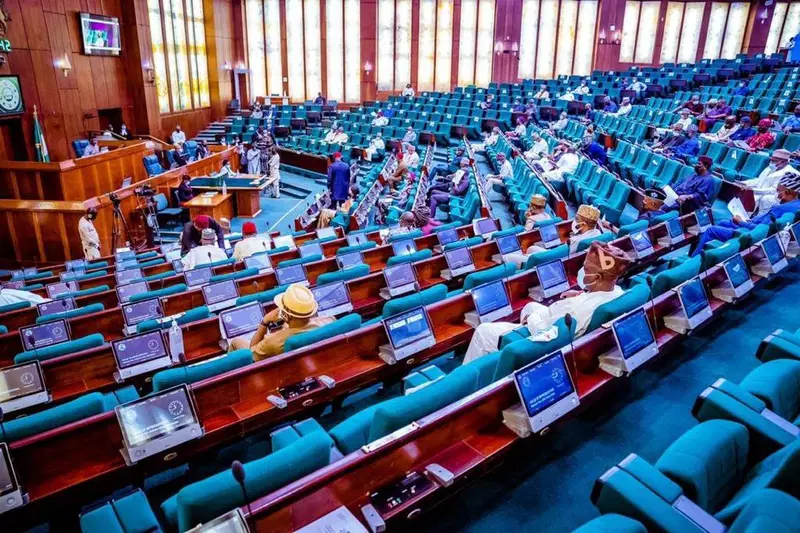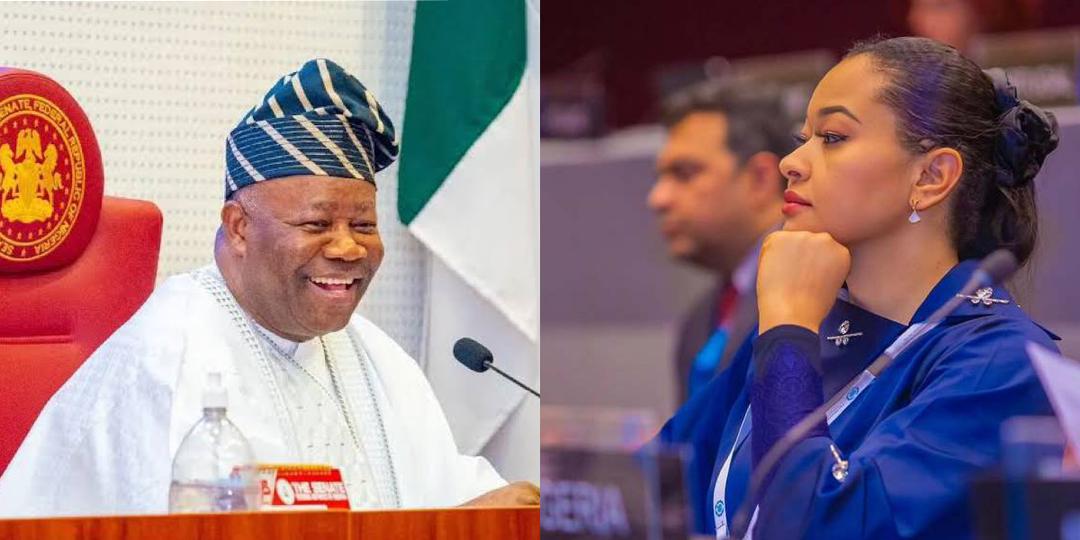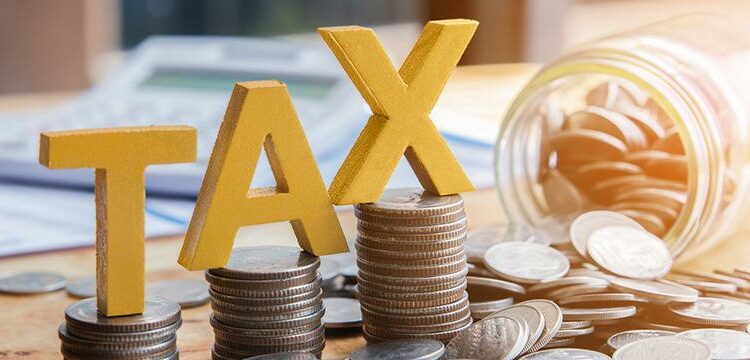
From Punch
The House of Representatives on Wednesday cautioned that the recent hike in fuel pump prices could trigger social unrest.
The Green Chamber handed down the warning as a meeting between the Federal Government and labour leaders over the increase in petrol prices ended in a stalemate on Wednesday.
Last week, NNPC retail outlets raised petrol prices to N1,030 per litre from N897 in Abuja, while in Lagos, the price jumped to N998 per litre from N868. Other regions experienced similar increases.
This is the second price hike in a month, reflecting an increase of about 14.8 per cent or N133.
The development triggered higher transportation and food costs across the country.
The organised labour and the Organised Private Sector demanded an immediate reversal of the price hike.
The Nigeria Labour Congress and Trade Union Congress condemned the price hike and called for an immediate reversal.
But addressing the issue during plenary, the House called on the Federal Government to immediately reverse the hike in the price of petrol and cooking gas, given the current economic hardship across the country.
The resolution of the House praying for the intervention of the executive arm of government followed the adoption of a motion of urgent public importance moved on the floor of the Green Chamber by the Minority Leader, Kingsley Chinda, and 100 others.
Titled, ‘Urgent need to suspend the increased cost of petrol and cooking gas in the country and provide a stop-gap,’ the motion drew attention to the hardship Nigerians were facing in meeting their basic needs in the past few months.
Speaking on the essence of the motion, Chinda, a member of the Peoples Democratic Party, expressed concern over the prices of petrol and cooking gas, saying the development was creating an unsustainable financial burden on ordinary Nigerians and exacerbating the cost of living.
He said, “The removal of fuel subsidy coupled with global oil price volatility and the naira depreciation has contributed significantly to the rising cost of petrol at the pump and cooking gas for households.
“We are worried that the escalating fuel and gas prices are impacting the cost of transportation, food, essential goods and healthcare, further increasing inflation and pushing many families into deeper financial hardship.
“The House is concerned that businesses, particularly small and medium-sized enterprises, are struggling to manage their operational costs due to increased fuel prices, threatening economic stability and job security.”
Chinda recalled that the President Bola Tinubu-led government had previously announced plans to repair domestic refineries and boost local refining capacity to address the challenges, lamenting, however, that “it is yet to deliver significant results in this regard.”
The rising cost of petrol and cooking gas, according to the lawmaker, “poses a significant threat to the livelihood of millions of Nigerians and unchecked inflationary pressure caused by the increased prices can lead to social unrest, increased poverty rates, and negative long-term economic effects.”
He added that unless urgent and pragmatic steps were taken to control the rising cost of petrol and cooking gas, Nigeria will go into “an economic crisis leading to negative outcomes like increased crime and mortality rates.”
Contributing to the debate, House Minority Whip, Ali Isa, condemned the incessant increment in the price of petroleum products, saying, “The people are suffering because of the increase in fuel price. The government should allow the people to breathe and should please not remove the cylinder giving Nigerians little oxygen.
“The government should listen to the cry of the people and take steps to review any policy that will affect Nigerians negatively. Those who signed this motion are of the view that their people and by extension, the Nigerian people, are suffering.”
Also speaking, the member representing Kanke/Pakshin/Kanam Federal Constituency, Plateau State, Yusuf Gagdi, said the motion was in line with the current challenges Nigerians were passing through.
“We speak to draw the attention of the government to do things that will improve the welfare of Nigerians,” he noted.
On his part, Deputy Minority Whip, George Ozodinobi, argued that the fuel price hikes had rendered the N70,000 new minimum wage meaningless, following the rise in the cost of goods and services.
“Our people cannot transport their farm produce to the market and because of that there is an increase in prices of food. We must pressure the government. We also need to review our Organisation of Petroleum Exporting Countries’ policy. We don’t have to be in OPEC because that is the only way we can address this issue,” he said.
Following the adoption of the motion, the House called on the Nigerian National Petroleum Company Limited, the Ministry of Petroleum Resources and other relevant agencies to “expedite action on the repair/maintenance of domestic refineries to enhance the nation’s local refining capacity as a stop-gap measure to reduce the dependence on imported refined petroleum products.”
The House also urged the Central Bank of Nigeria to implement monetary policies “that will mitigate the adverse effects of fuel price hikes on inflation, particularly with regards to essential goods and services.”
The House called on the Tinubu-led government to explore alternative energy sources and diversify the country’s energy mix to reduce reliance on petrol and gas, promoting renewable energy solutions that were more sustainable and affordable in the long term.
It further tasked state governments to adopt policies that would alleviate the financial burden on their citizens such as tax waivers or levies on transportation and goods affected by high fuel prices.
Following the insistence of the labour leaders on reduction of fuel prices, the Federal Government team, led by the Secretary to the Government of the Federation, George Akume, held a closed-door meeting with the unions in Abuja on Wednesday.
Other members at the meeting included the National Security Adviser, Nuhu Ribadu; Minister of Finance, Wale Edun; Minister of Budget and National Planning, Abubakar Bagudu; Minister of State for Labour and Employment, Nkeiruka Onyejiocha and Minister of State for Petroleum, Heineken Lokpobiri, among others.
A source privy to the meeting, who spoke on condition of anonymity because he was not authorised to speak on the matter, said the government and labour could not reach a common ground on the matter.
“At the meeting, the NLC expressed their disapproval of the price hike and held their ground that it must be reversed. The government team tried to convince them to reason with them, but they could not reach a common ground on the matter. They resolved to meet again,” our source said.
Speaking after the meeting, the Minister of Information, Mohammad Idris, said the engagement with the labour leaders would be continuous.
He said, “It is a work in progress, it is not a one-off thing. There is going to be a continuous engagement between us and the labour leadership. Labour is an important component of this country.
“All of them are our brothers and sisters. Government is there for everyone, including Labour. So we will continue to engage Labour for the good of the country. We will continue to do that. “
Bagudu said the government had made tough decisions that would begin to yield good fruits for the citizens.
He said, “Of course, tough decisions come with challenges and consequences. We are dealing with those now, which are part of the reasons we’re asking: why is there a spike in inflation for September, following the decline we discussed earlier? The answer lies in energy prices, which have yet to stabilise, affecting oil prices.
“We are currently in the midst of the harvest season, and we believe this will further impact food prices. Most of the measures taken are beginning to yield results, leading to greater levels of investment and efforts to mobilise even more investments, which we believe will solidify the rise in gross domestic product.
“Our GDP for the first quarter increased by over two per cent, close to three per cent. In the second quarter, it grew by 3.19 per cent.
“Some people may say that sounds slow, but let me put that into context. Germany, which is wealthier and has more resources to respond to challenges, saw a decline of 0.3 per cent. The UK is struggling with a decline of 0.2 per cent.
“So, what choices do we need to make? We’ve made bold choices. Today, state governments, local governments, and the Federal Government are better funded. Yes, inflation and the cost of living remain challenges, but they are not unique to Nigeria.
“Fertilizer prices, energy prices, and cost-of-living crisis are being witnessed in many countries. This isn’t meant to comfort us, but to provide perspective.
Published by Ejoh Caleb






